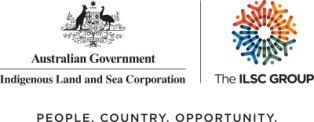The first ever symposium aimed at increasing Indigenous participation in the Australian bush foods industry will start today in Sydney.
Some 150 people from around the country are set to attend the National Indigenous Bush Food Symposium to be held at Barangaroo on November 27 and 28.
The conference is funded by the Indigenous Land and Sea Corporation (ILSC), and is being delivered by First Hand Solutions Aboriginal Corporation and UTS Business School.
First Hand Solutions CEO, Peter Cooley, said one of the main aims of the symposium would be to identify and address barriers to Aboriginal people having more involvement in the bush foods sector.
“The bush food market is currently valued at $20 million annually, but it is estimated that Aboriginal and Torres Strait Islander people make up only 1-2% of the market presence and we’re keen to work together to improve this percentage,” he said.
“While there have been some great successes particularly in the food and botanicals sector, there is a need to identify the barriers faced by Indigenous people as they enter an industry that is essentially based on their traditional country and knowledge.
“The commercialisation of that knowledge should be in the hands of Indigenous people and driven by them.”
The symposium will offer information sessions on topics including analysing market trends, establishing supply chains, identifying international opportunities and asserting legal rights over knowledge, plants and foods.
Associate Dean at UTS Business School, Professor Robynne Quiggin, said it was essential to build a working knowledge of relevant state, territory and Commonwealth legislation, as well as domestic protocols and international mechanisms relating to bush foods.
“This information enables us to make informed choices about our knowledge, species and country, insist on proper processes for consent and equitable sharing in any commercial benefits,” she said.
ILSC Chairman, Eddie Fry, said the organisation has a keen focus on opening up markets for niche Indigenous products and particularly bush foods.
“The ILSC believes it is very important for Aboriginal and Torres Strait Islander people to understand the value of their cultural knowledge, and to learn how to turn that knowledge into a successful commercial venture,” he said.
“We have provided funding for projects in the bush foods sector across the country which are having some great success, and we hope that those stories will inform and inspire others.”
One such success story is the Northern Australia Aboriginal Kakadu Plum Alliance (NAAKPA), which has grown to be the largest Traditional Owner-led bush food supply chain in Australia.
Member Pat Torres of Djugun, Yawuru, Ngumbarl/Jabirr-Jabirr, NyulNyul, Bardi and Karajarri descent in Western Australia’s Kimberley region will speak at the symposium about protecting family and culture while growing a commercial bush food business.
“Every bush food has its own creation story, its own song and dance and cultural knowledge that has been handed down by our ancestors for thousands of years,” she said.
“The challenge for us is how do we bring our ancient foods into a contemporary industry while maintaining our connection to our culture, because for us, it’s not just about money, it’s about our identity.”
At the conclusion of the symposium, a number of resolutions will be put to attendees on the way forward for Aboriginal people to work together in the bush food sector.
The symposium will be followed by the Twilight Blak Markets at the National Centre of Indigenous Excellence in Redfern, where Indigenous groups from across the country will showcase their bush foods and other products.
For more media information and interview opportunities, please contact:
Claire Muntinga | Communications Coordinator | Indigenous Land and Sea Corporation (ILSC)
M: 0429 373 348 | E: Claire.Muntinga@ilsc.gov.au

